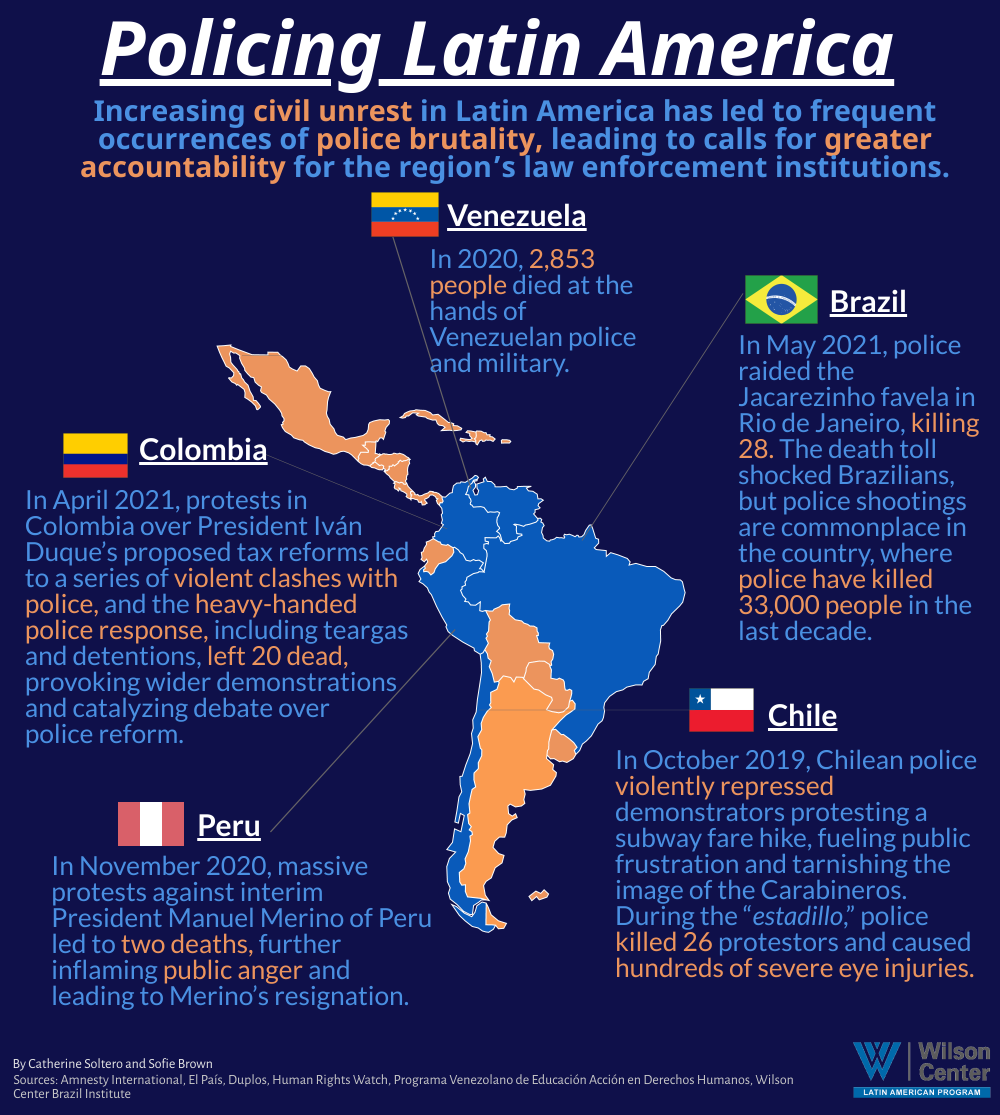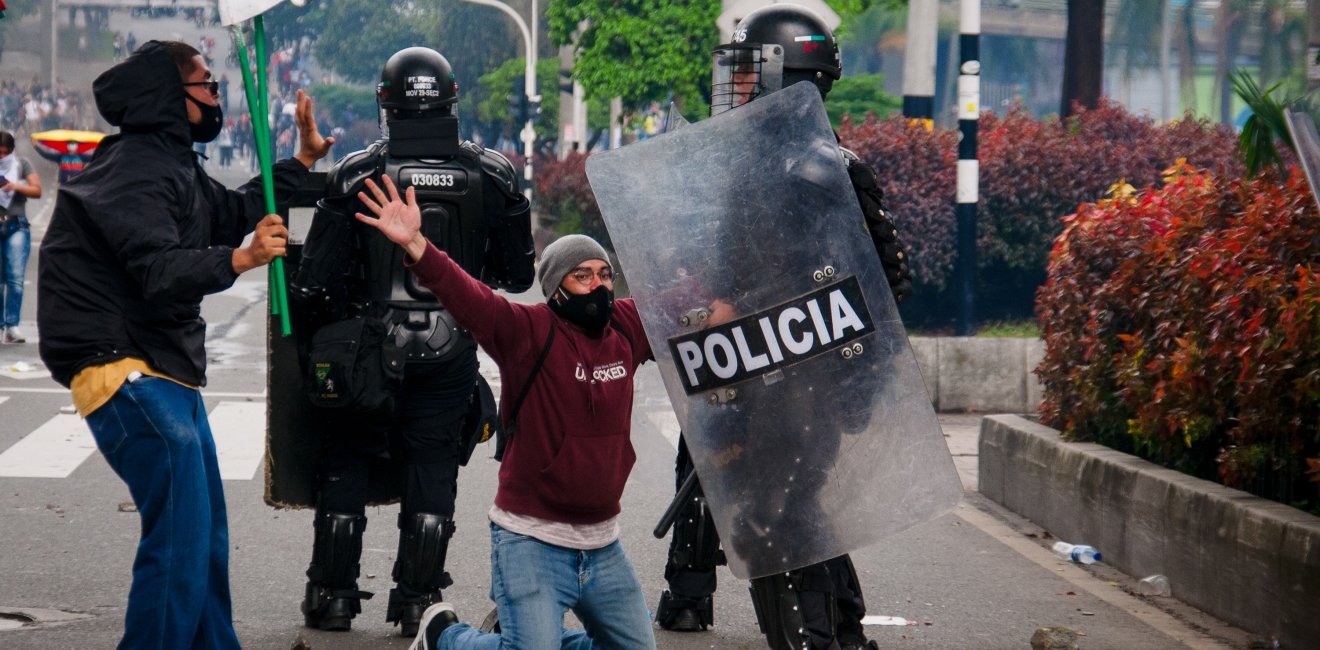
A blog of the Latin America Program
Police violence is not new in Latin America, but George Floyd’s death and the Black Lives Matter movement in the United States have drawn greater attention to police brutality and human rights abuses in the region.
In Latin America, the heavy-handed police response to social protests in 2019 in Chile and in 2021 in Colombia have also increased scrutiny of law enforcement institutions in a region where the security services are still regarded with suspicion for their role during the military dictatorships. Chilean police killed an estimated 26 protestors, and provoked more than 4,500 complaints of human rights violations, in 2019. Colombia’s response to protests that began in April led to calls for a broad restructuring of the national police. In Mexico, a June 2020 video of police violently detaining an individual for failing to wear a mask sparked public outrage. In Peru, the police response to November 2020 protests against interim President Manuel Merino led to two deaths, hundreds of injuries and Merino’s resignation. In Venezuela, more than 2,800 people died from police brutality in 2020, a more lethal threat to public safety than COVID-19.
Brazil has escaped widespread, sustained protests in recent years, but Brazilians are no strangers to police abuses. In the last decade, police have killed 33,000 people, with 79 percent of victims black men. In 2019, Brazilian police fatally shot more than 1,800 individuals, almost double the number in the United States. In the first three months of 2021, police have killed a record 453 Brazilians. In May, despite a supreme court order restricting police raids in Rio de Janeiro, police descended upon the Jacarezhino favela, leaving 28 people dead.
Policing Latin America is not easy. Police officers are often poorly paid, poorly trained and patrolling in some of the world’s most violent cities. But racial inequities and a lack of accountability have led to widespread frustration with law enforcement. In the 2018 Latinobarómetro survey – before the string of police abuses beginning in 2019 – only 35 percent of Latin Americans expressed confidence in the police.

Author


Latin America Program
The Wilson Center’s prestigious Latin America Program provides non-partisan expertise to a broad community of decision makers in the United States and Latin America on critical policy issues facing the Hemisphere. The Program provides insightful and actionable research for policymakers, private sector leaders, journalists, and public intellectuals in the United States and Latin America. To bridge the gap between scholarship and policy action, it fosters new inquiry, sponsors high-level public and private meetings among multiple stakeholders, and explores policy options to improve outcomes for citizens throughout the Americas. Drawing on the Wilson Center’s strength as the nation’s key non-partisan policy forum, the Program serves as a trusted source of analysis and a vital point of contact between the worlds of scholarship and action. Read more


Brazil Institute
The Brazil Institute—the only country-specific policy institution focused on Brazil in Washington—aims to deepen understanding of Brazil’s complex landscape and strengthen relations between Brazilian and US institutions across all sectors. Read more

Explore More in Weekly Asado
Browse Weekly Asado
Dengue Haunts South America’s Summers

Lessons from Costa Rica’s Economic Transformation

Women and Latin America’s Digital Revolution



